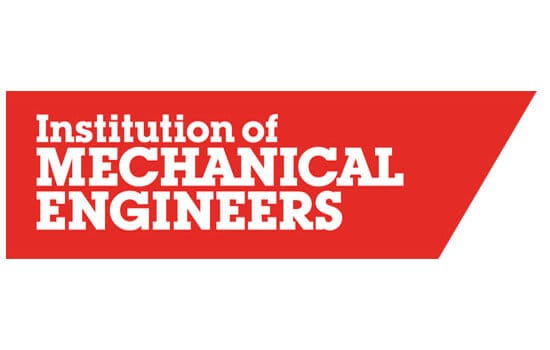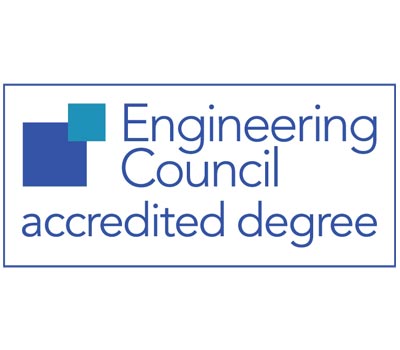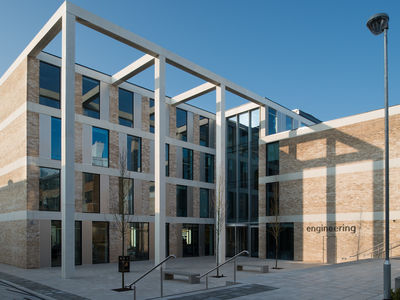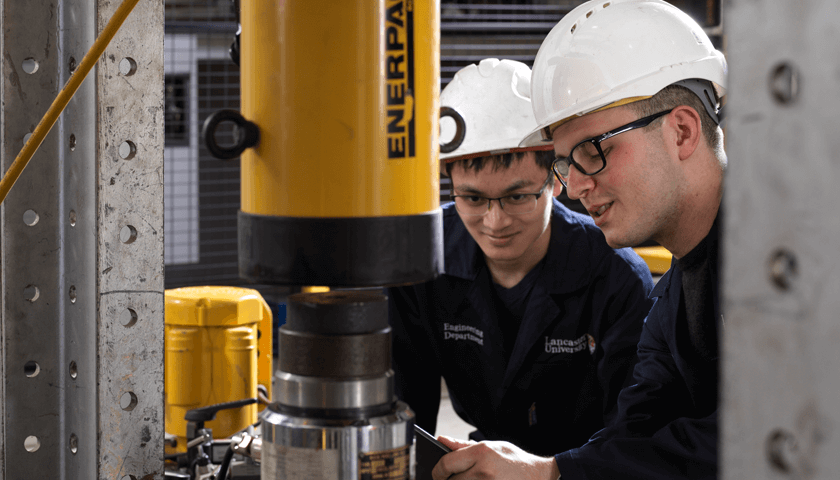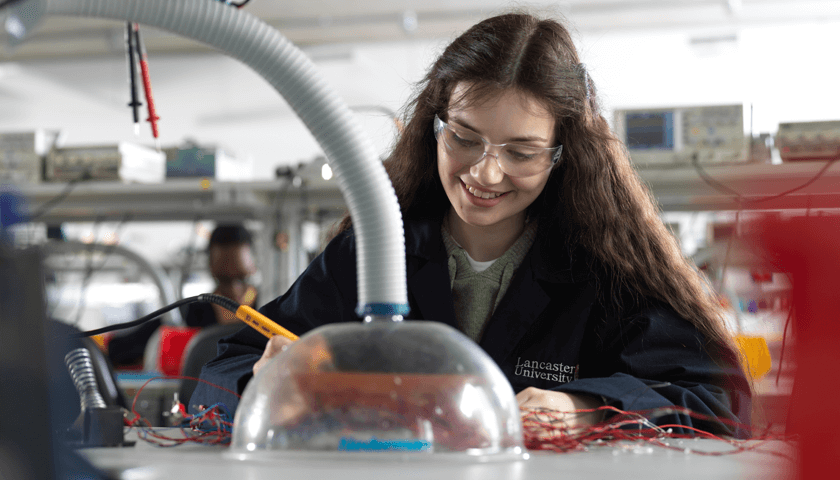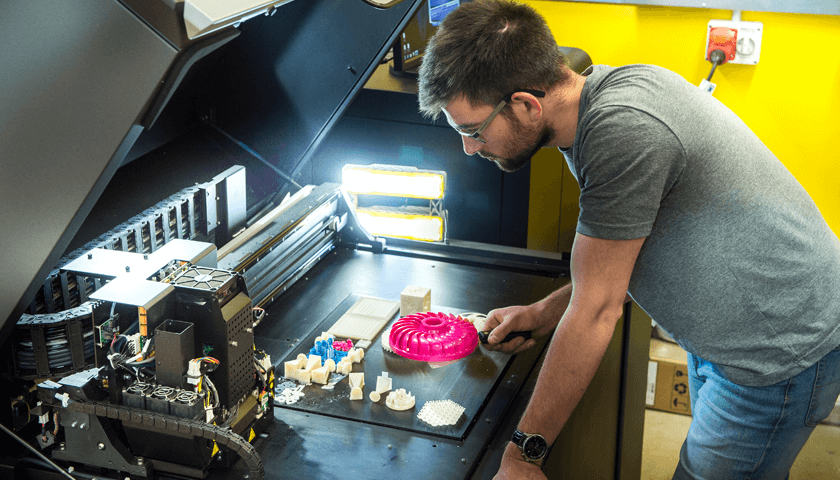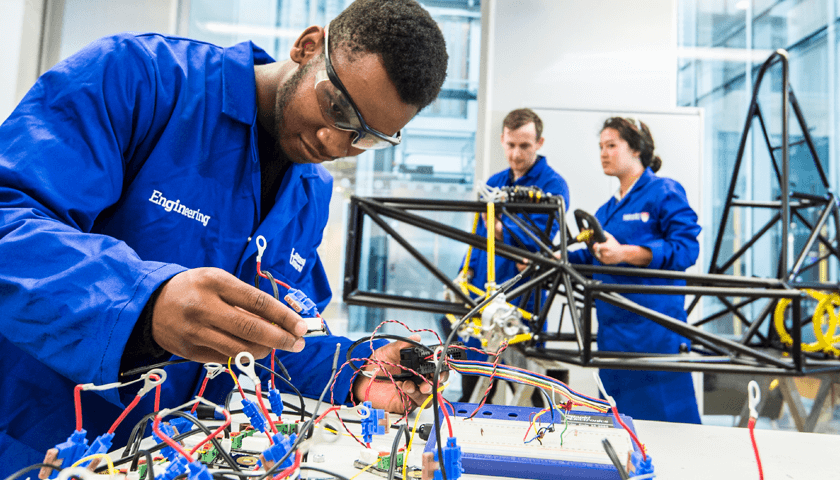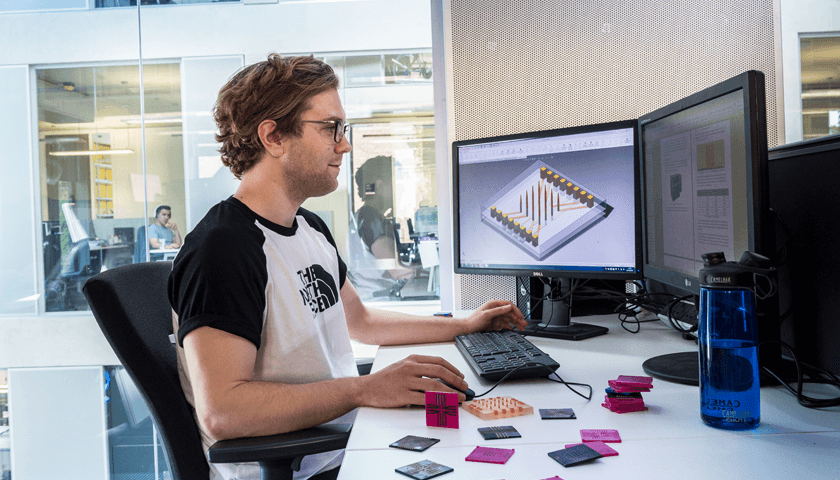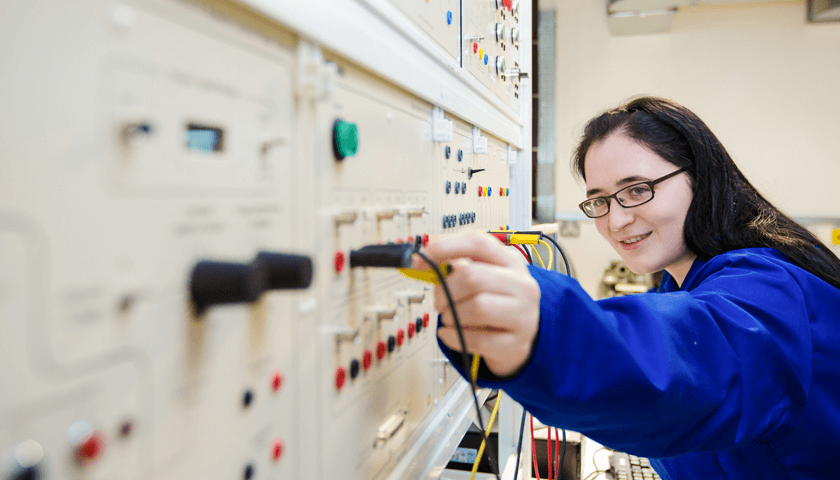Mechanical engineers use their skills in almost every industry, and you’ll find their expertise in nearly everything you see and use in everyday life. They design and develop products, systems and machinery to tackle all sorts of challenges, from renewable energy to household appliances, from robotics to manufacturing equipment, from aerospace components to healthcare solutions. As a mechanical engineer you get to use your creativity to design and develop products and systems, build prototypes, analyse and test until you find your solution. Throughout your career you will frequently work across teams of engineers from other branches of the discipline, so it’s crucial to have a broad understanding of general engineering and its applications. At Lancaster, your first year is dedicated to exactly this, and you’ll share this experience with all our School of Engineering students, regardless of their specialisation. We think this makes you a well-rounded graduate, with excellent teamwork and communication skills, prepared for your future career.
Broaden your horizons
Enrich your university experience with a year overseas at one of our partner universities. In Year 4, head out to start your adventure and immerse yourself in a different cultural and academic community. We’ll support you all the way!
What to expect
Our five-year MEng Hons Mechanical Engineering (Study Abroad) degree starts with your general engineering first year and includes core themes of design, materials, thermodynamics and heat transfer, along with mathematics.
In Year 2 is where you start to specialise in mechanical engineering and you will learn core themes such as the science of materials, mechanics, fluids and thermodynamics, and also machine design and control, which includes the opportunity to apply these principles to applications like mobile robotics. Working in our two new engineering buildings with state-of-the-art facilities, you’ll develop your creativity and technical skills as you design, build and test to solve real-world problems.
In the third year you will undertake a significant collaborative project. It’s a fantastic opportunity to develop professional skills such as project management, team working and research, whilst studying industrially relevant systems. Alongside your project work you will study specialist modules such as dynamic systems, computer-aided engineering and product design, through which you will gain relevant real-world experience.
Take further steps towards professional engineering with management skills, project management, and industry engagement. Sustainability, safety, ethics and quality management are kept in focus too.
Master’s-level training
During your final year you will undertake an extended individual project which gives you the opportunity to conduct research and pursue your interests in an engineering application of your choosing. This research will be supported by the School’s world-leading researchers whose expertise lies in energy, robotics, advanced manufacturing and more. You will also be able to tune your final year towards your career aspirations with pathways focussing on sustainable power generation, including renewable and nuclear power, or industrial system design, which includes mechatronics, control and machine learning. The fourth year also includes industry projects wherein you solve real-world problems for local companies as consultants, which is excellent experience for employment. This year will solidify your knowledge, placing you in an excellent position to launch your engineering career and progress toward achieving Chartered Engineer status.
Personal development
You will develop valuable transferable skills that make you highly desirable to future employers, such as working in collaboration, communication, and the ability to design, build, and implement a system or device. You will grow practical skills in diagnosis and testing, system maintenance, digital proficiencies, and the ability to consider and maintain work safety practices in a range of environments.
We hope you find your year overseas personally enriching. Our students often tell us that they return feeling more confident, self-assured and with a broader perspective to take into job interviews.
3 things our mechanical engineering students would like you to know:
- The multi-disciplinary first year is brilliant for future careers when project work will include colleagues from other engineering specialisms
- Each year of engineering has been better than the previous one, and you build up more independence as you go. From first year introductory labs, all the way to your very own project, research and supervisor
- All of us engineers share the same newly built facilities. We have access to the labs and maker spaces a lot of the time for both personal and academic use
Will my course be four or five years?
Students beginning this course in 2025 will study for four years. Students beginning in 2026 will study a revised five-year course.


